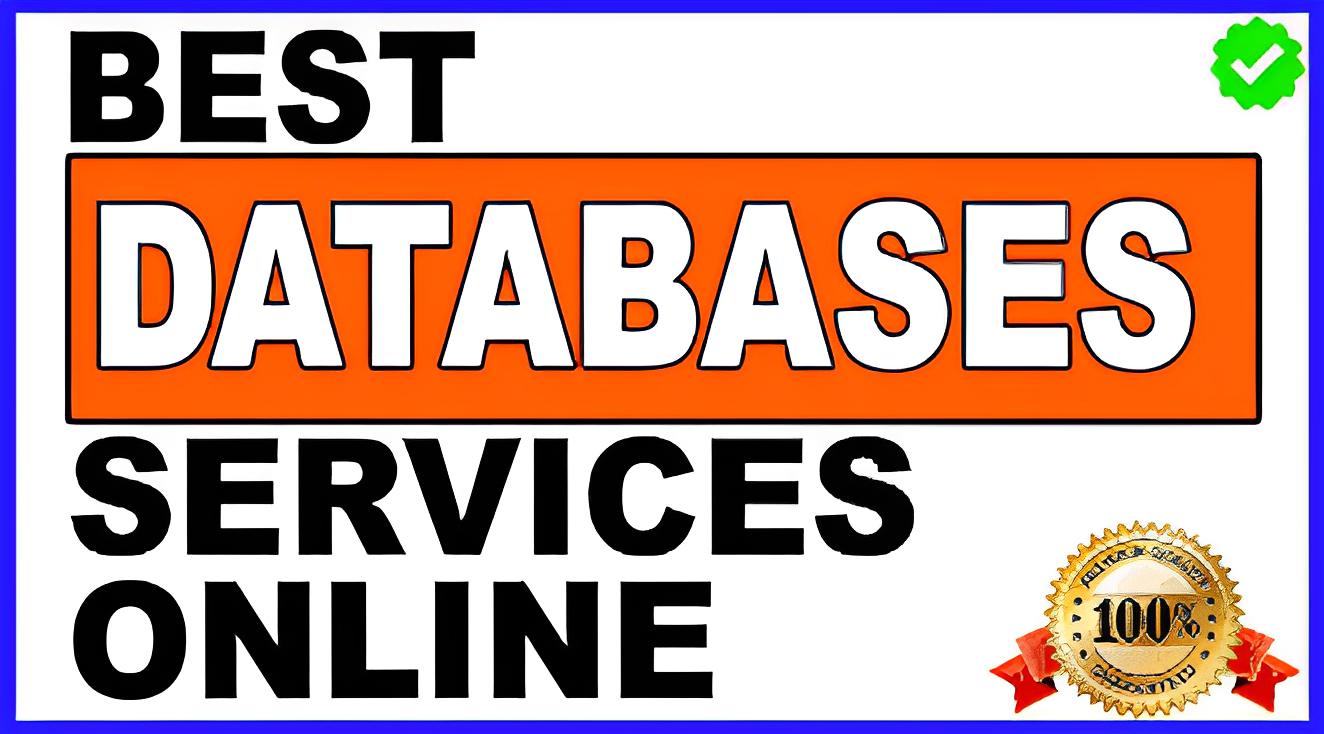If You Have Databases, We Want Them
The 21st century is often hailed as the “Information Age,” a term that underscores the profound shift from mechanical and analog advancements of the 20th century to the digital revolution. This era is characterized by the explosive growth and integration of digital technology into every facet of life. Unlike the previous century, where mechanical innovations like the internal combustion engine and early computers revolutionized industry and daily activities, the Information Age has been defined by the rapid development of digital technologies and the Internet.
Computers, once considered powerful for their speed and storage capabilities, have evolved into increasingly sophisticated devices with vast processing power and storage capacities. The advent of the Internet has further transformed this landscape, creating a global network that enables instantaneous communication, access to information, and the ability to connect with others around the world. This digital infrastructure has not only enhanced personal convenience but has also revolutionized business operations.
In the Information Age, physical limitations of storage and retrieval have become virtually obsolete. For instance, the need for physical film rolls for photography has been replaced by digital cameras and smartphones, allowing for an almost limitless number of photos to be taken and stored with ease. Similarly, the traditional concept of a bookshelf, once constrained by physical space, has been replaced by digital libraries where e-books and documents can be stored, accessed, and read instantly from anywhere.
This shift has fundamentally changed how we manage, process, and interact with information, highlighting the central role that digital technology plays in modern life and commerce.
Perhaps most transformative of all, the Information Age has radically altered how archival information is stored and managed. Historically, vast quantities of documents and records would have required significant physical space—multiple filing cabinets, extensive paper storage, and dedicated real estate. Today, this once cumbersome process has been streamlined through digital storage solutions. Archival data that would have previously occupied entire rooms can now be compressed into compact physical formats like discs and USB drives, or housed within expansive digital repositories such as hard drives and cloud storage systems. These digital solutions not only minimize physical storage requirements but also enhance data management efficiency.
The advent of cloud storage further revolutionizes data handling by distributing information across multiple servers. This approach introduces redundancy and resilience, ensuring that data remains accessible even if one server fails. As a result, organizations can maintain continuity and safeguard critical information against potential data loss.
However, in the context of this abundance of data, its value is not static. The worth of data can fluctuate significantly based on its relevance, the context in which it is used, and the specific needs of the data seeker. In fields such as marketing, data’s significance is multi-faceted. It can drive strategic decisions, inform targeted campaigns, and yield insights into consumer behavior. Yet, the sheer volume of data often makes it challenging to discern what is valuable. The utility of data depends heavily on its accuracy, timeliness, and applicability to specific goals. Thus, the ability to effectively manage and interpret data is crucial in leveraging it for meaningful outcomes.

It’s More Than Just Names
In today’s digital landscape, marketing and promotional efforts can utilize a diverse array of channels to connect with potential customers, including physical mail, email, telephone, and various digital platforms. At the core of effective marketing lies the essential element of reliable contact data. Accurate and up-to-date contact information is crucial because without it, reaching out to individuals becomes a formidable challenge.
The challenge of connecting with potential customers is further compounded by the multitude of contact points available. Individuals may have multiple email addresses, phone numbers, and social media profiles, each of which may be preferred or used differently. This multiplicity makes it complex to identify and utilize the most effective communication method for each person.
Modern marketing strategies must acknowledge that comprehensive data collection and management are vital to maximizing reach. Without a thorough search and integration of various contact points, it is unlikely that every potential contact method will be identified for each individual. Thus, marketers must invest in robust data management systems and analytical tools to ensure they have a holistic view of their audience. This approach not only enhances the precision of targeting but also improves the overall effectiveness of marketing campaigns by aligning communication strategies with the preferences and habits of the intended recipients.
In addition to having accurate contact details, an essential component of effective marketing data is understanding the values, interests, and characteristics associated with each contact point. While contact information serves as a gateway to reach potential customers or clients, it is the underlying attributes of these individuals that drive meaningful engagement and personalized marketing strategies.
Historically, discerning individual preferences and characteristics was a daunting task, often reliant on limited and fragmented data sources. However, with the rise of digital technology and the sheer volume of data generated online, this has become increasingly feasible. Advanced analytics tools and big data technologies now enable businesses to track and analyze vast amounts of information, revealing insights into consumer behaviors, preferences, and demographic profiles. This granular understanding allows for highly targeted and effective marketing campaigns that resonate with specific audience segments.
Sprint Data Solutions Worldwide Marketing is at the forefront of leveraging such data. Our expertise lies in the meticulous gathering, organization, and utilization of databases to enhance marketing strategies. We actively seek to expand our inventory by acquiring new databases, ensuring we provide the most comprehensive and current data available. If you have a database that you no longer need or wish to share, we offer a streamlined process to integrate it into our collection, helping you make the most of your data while enriching our resources.
Who Is Sprint Data Solutions Worldwide Marketing?
Sprint Data Solutions Worldwide Marketing is a distinguished American-owned and operated company founded by a disabled veteran who transitioned from military service to champion the business community. Established in Las Vegas, Nevada, the company has demonstrated a steadfast commitment to quality, which has fueled its steady expansion and success. Today, the team at Sprint Data Solutions boasts a collective experience of over 50 years in the marketing industry.
The company offers a diverse array of data-centric products and services, seamlessly blending traditional marketing methods with innovative digital strategies. Direct mail, a cornerstone of their service portfolio, is complemented by cutting-edge digital marketing solutions, ensuring comprehensive coverage of both established and emerging marketing channels.
Initially rooted in Las Vegas, Nevada, Sprint Data Solutions has expanded its operations to cover the entire United States, including all states, Hawaii, and Alaska. The company’s reach has extended beyond national borders to encompass North American markets, including Mexico and Canada. For clients with global ambitions, Sprint Data Solutions also provides access to valuable marketing data for countries across the Atlantic, including France, catering to a broad spectrum of international marketing needs.
Always Expanding
Sprint Data Solutions Worldwide Marketing recognizes the importance of continually expanding and enriching its database archives to maintain value and relevance in a dynamic market. The company proactively seeks diverse sources to enhance its database offerings, ensuring they meet the evolving needs of its clients. Among the types of databases that the company is particularly interested in are:
Consumer Databases
The general retail market is expansive, with consumers continually seeking specific products and services tailored to their interests and needs. Consumer databases reflect this diversity, capturing valuable insights across various segments. For instance, gaming enthusiasts often provide detailed information when they sign up for new games or services, including preferences, gaming habits, and demographic details. Similarly, automotive enthusiasts might share their name, address, and contact information when purchasing specialized car parts or engaging with automotive brands.
The vast array of consumer possibilities underscores the reality that no database can ever be entirely comprehensive. The dynamic nature of consumer behavior means there are always emerging segments and untapped opportunities within specific demographics. As such, the quest for valuable consumer data is ongoing, with each new data set offering potential insights into different interests, purchasing patterns, and lifestyle choices. This continuous expansion and refinement of consumer databases enable businesses to target their marketing efforts more effectively, addressing the ever-evolving demands of the marketplace.
Complete Business Databases
The B2B sector represents a highly lucrative market, driven by the constant need for businesses to invest in products and services that enhance or sustain their operations. Successful B2B transactions can provide a steady and profitable revenue stream, provided that the products or services meet the high standards required by commercial or industrial clients.
However, navigating business databases can present challenges. While general contact information such as a company’s website or corporate phone number is readily accessible, reaching the right decision-maker within the organization is often more complex. Effective B2B marketing requires precise data that goes beyond general contact details. High-quality business databases should include specific information about key individuals within the company, including their job titles, roles, and their relevance to the B2B transaction.
Access to such detailed data enables targeted outreach and personalized communication, improving the likelihood of engaging with decision-makers who have the authority to evaluate and act on B2B proposals. This level of specificity is crucial for optimizing marketing efforts and forging meaningful business relationships, ensuring that proposals are directed to those who are most likely to benefit from and act upon them.
International Databases
For many businesses, expanding their customer base to the global market can offer significant growth opportunities. However, this endeavor comes with its own set of challenges, including language barriers and differing alphabets, which can complicate communication and marketing efforts. Successfully reaching international customers requires a strategic approach to navigate these complexities.
When targeting new customers abroad, businesses need comprehensive and localized contact information. This includes not only basic contact details but also an understanding of local languages, cultural norms, and regional preferences. For B2B ventures, the challenge is similar but involves additional considerations such as understanding local business practices, regulatory environments, and industry-specific requirements.
To effectively tap into international markets, businesses should seek detailed demographic breakdowns and categorizations relevant to the regions they are targeting. This information helps in crafting tailored marketing strategies that resonate with local audiences. It also aids in identifying key decision-makers within organizations, understanding market demand, and aligning offerings with local needs.
By acquiring and utilizing high-quality international databases that provide insights into local demographics, business structures, and consumer behaviors, American companies can better position themselves to engage with the right international customers. This strategic preparation ensures that businesses are well-equipped to navigate the global marketplace and establish a successful presence in new regions.

Database Services Available Too
Sprint Worldwide Solutions Marketing goes beyond simply acquiring databases; we specialize in evaluating and optimizing data to maximize its value. Our expertise in data analysis and application extends to helping clients understand and leverage their data effectively. We apply the same advanced techniques used to benefit our clients to assess incoming data, providing valuable insights into its potential. Our comprehensive range of services includes:
Database Appraisal Service
Understanding the true value of data is essential for leveraging it effectively. Not all data is created equal, and its quality and relevance can vary significantly. At Sprint Worldwide Solutions Marketing, we recognize that evaluating data accurately is crucial for determining its worth. Our database appraisal service provides a thorough assessment of incoming databases, evaluating their quality, relevance, and potential value.
We employ advanced techniques to analyze various characteristics of the data, including accuracy, completeness, and timeliness. Our appraisal service not only assigns a fair value to the data but also offers insights into how it compares with current industry market rates. This helps clients understand the potential of their data and make informed decisions, whether they choose to retain, utilize, or sell it.
By providing a detailed valuation and market context, we ensure that clients have a clear understanding of their data’s worth and can make strategic decisions based on its value and industry benchmarks.
Database Consignment Services
One of our key services designed to streamline transactions for all parties involved is our database consignment feature. If you have a database that you wish to sell but prefer not to handle the sale process yourself, Sprint Data Solutions Worldwide Marketing offers a comprehensive consignment solution.
Under this service, we take ownership of the database and manage the entire sales process on your behalf. This includes maintaining the database while it is under our care, ensuring its quality and relevance are preserved. We handle all aspects of the sale, from marketing and negotiating to finalizing the transaction.
This approach allows you to benefit from the sale of your database without the need for direct involvement in the management or sales activities. By entrusting us with the consignment, you can focus on your core business activities while we manage the complexities of selling your data, ensuring a smooth and profitable transaction.
Ready To Negotiate
Sprint Data Solutions Worldwide Marketing is dedicated to expanding and refining our database capabilities to enhance our service offerings. Unlike many businesses that merely lease database access from partners, we take a proactive approach by creating and managing our own proprietary databases. We strategically acquire high-value databases through direct negotiations with vendors, ensuring that we maintain control over the quality and relevance of our data.
If you have a database that you’re considering selling or one that no longer aligns with your current data strategy and business objectives, Sprint Data Solutions Worldwide Marketing may be a potential buyer. We’re particularly interested in acquiring databases that can contribute to our expansive and diverse portfolio, which includes a wide range of consumer and business data. Our commitment to meticulous database management and strategic acquisitions helps us deliver unparalleled value and insights to our clients.
At Sprint Data Solutions Worldwide Marketing, we uphold stringent criteria and requirements to maintain our high internal standards for database quality. Our commitment is to ensure that all databases we provide to clients meet our rigorous benchmarks for accuracy and relevancy. For instance, when clients seek access to high-value political donor information, we rigorously verify that the data is both authentic and up-to-date, safeguarding our reputation for delivering top-notch data services.
We prioritize the integrity and usefulness of the data we handle, steering clear of outdated or irrelevant information that would not benefit our clients. Our sophisticated data analytics capabilities enable us to manage and process large volumes of data effectively. Whether it’s databases with over 100,000 contacts or more, we are equipped to evaluate, acquire, and integrate extensive datasets, ensuring they align with our exacting standards and provide maximum value to our clients.

Let’s Work Together
If you have a database or leads that you’re no longer interested in maintaining or wish to sell, Sprint Data Solutions Worldwide Marketing may be the ideal partner to help you maximize its value. We follow comprehensive protocols when acquiring databases, ensuring that each one meets our high standards for quality and relevance.
Our evaluation process emphasizes not just the size of the database, but also its accuracy, legitimacy, and overall applicability. We are particularly focused on the precision of details such as mailing addresses, email addresses, and demographic characteristics. Our goal is to uphold the quality and effectiveness of the data we provide to our clients.
We are always open to considering and thoroughly analyzing databases available for sale to confirm their authenticity and relevance. By collaborating with us, you can enhance the investment potential of your database while contributing to our mission of delivering valuable and reliable data to our clients. If you have a database that fits these criteria and wish to explore a sale, please reach out to us. Together, we can work towards increasing its value and ensuring it meets the high standards expected by both you and our clientele.





